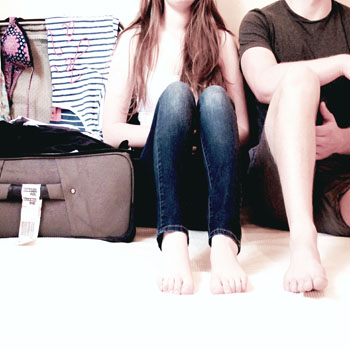adelaide fringe theatre review: all my friends are leaving adelaide
 What I expected when I saw Unified Productions’ debut performance of All My Friends Are Leaving Adelaide was something that I’d find hilariously relatable. I expected familiar quips about bailing from the City of Churches to hang out with other locals in Melbourne and/or London. I expected it to be Adelaide-centric and lighthearted. And on these fronts, it delivered. What I didn’t expect, however, was to fill up a whole page in my notebook with all the gender stereotypes it invoked.
What I expected when I saw Unified Productions’ debut performance of All My Friends Are Leaving Adelaide was something that I’d find hilariously relatable. I expected familiar quips about bailing from the City of Churches to hang out with other locals in Melbourne and/or London. I expected it to be Adelaide-centric and lighthearted. And on these fronts, it delivered. What I didn’t expect, however, was to fill up a whole page in my notebook with all the gender stereotypes it invoked.
Because we all like a list, here are a few:
- men hate relationships and women just want any relationship
- women aren’t funny and can’t recognise jokes
- women lose interest in sex once they’re in a relationship
- girls like arseholes
- men and women can’t be friends
- men are jerks after sex, and they cheat
Here are some actual quotes:
- ‘Every eligible guy gets a turn’ [“on” the female lead]
- ‘You don’t make friends with unattractive women’
- ‘Three billion women fit into five neat categories’ (being Ginger, Sporty, Scary, Posh, and Baby)
Oh, and there is an actual manic pixie dream girl.
See, a lot of these things are positioned as funny “slice of life”-type moments and factoids, and judging by the audience reaction, most people will accordingly find them amusing (which just makes me think that a lot of people either can’t recognise sexism, or find it genuinely hilarious). On a more sincere positive note, the interactions between the characters do seem realistic; it was well-cast and all the “hanging out” the characters do serve to demonstrate and authenticate their friendships very well. Of particular note was Nadia Talotta as Stephanie, the male lead’s neurotic, uptight and prim girlfriend, whose drunk scene was flawless, and who still managed to add substance to and create sympathy for the trope she had to work with.
Although the assured Adelaide-centricity was one of the main reasons I had wanted to see this play, its relevance is limited to an even smaller audience than just Adelaide residents. This play can essentially only be properly understood by people who went to private school in the eastern suburbs, and yet the characters (read: the writers) seem blissfully unaware that choosing between hitting the backpacking trail and taking an associateship isn’t an Adelaide thing, it’s a rich people thing.
All in all, if you want to see just about every stereotype ever seen in every rom-com ever, this is a convenient way to get through just about all of them in an hour.

